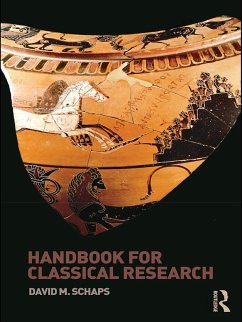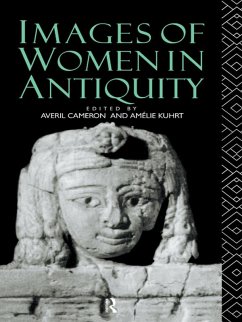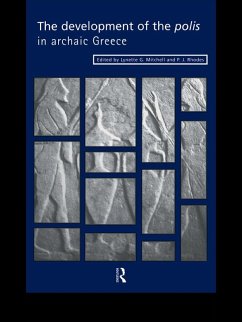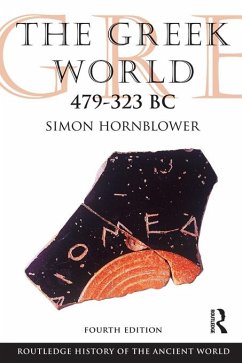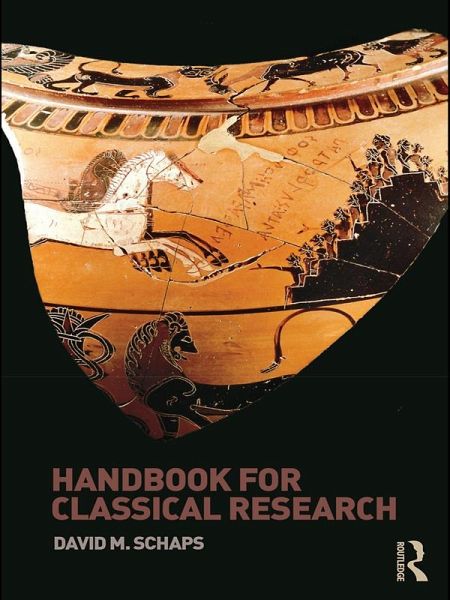
Handbook for Classical Research (eBook, PDF)
Versandkostenfrei!
Sofort per Download lieferbar
41,95 €
inkl. MwSt.
Weitere Ausgaben:

PAYBACK Punkte
21 °P sammeln!
One of the glories of the Greco-Roman classics is the opportunity that they give us to consider a great culture in its entirety; but our ability to do that depends on our ability to work comfortably with very varied fields of scholarship. The Handbook for Classical Research offers guidance to students needing to learn more about the different fields and subfields of classical research, and its methods and resources.The book is divided into 7 parts: The Basics, Language, The Traditional Fields, The Physical Remains, The Written Word, The Classics and Related Disciplines, The Classics since Anti...
One of the glories of the Greco-Roman classics is the opportunity that they give us to consider a great culture in its entirety; but our ability to do that depends on our ability to work comfortably with very varied fields of scholarship. The Handbook for Classical Research offers guidance to students needing to learn more about the different fields and subfields of classical research, and its methods and resources.
The book is divided into 7 parts: The Basics, Language, The Traditional Fields, The Physical Remains, The Written Word, The Classics and Related Disciplines, The Classics since Antiquity. Topics covered range from history and literature, lexicography and linguistics, epigraphy and palaeography, to archaeology and numismatics, and the study and reception of the classics.
Guidance is given not only to read, for example, an archaeological or papyrological report, but also on how to find such sources when they are relevant to research. Concentrating on "how-to" topics, the Handbook for Classical Research is a much needed resource for both teachers and students.
The book is divided into 7 parts: The Basics, Language, The Traditional Fields, The Physical Remains, The Written Word, The Classics and Related Disciplines, The Classics since Antiquity. Topics covered range from history and literature, lexicography and linguistics, epigraphy and palaeography, to archaeology and numismatics, and the study and reception of the classics.
Guidance is given not only to read, for example, an archaeological or papyrological report, but also on how to find such sources when they are relevant to research. Concentrating on "how-to" topics, the Handbook for Classical Research is a much needed resource for both teachers and students.
Dieser Download kann aus rechtlichen Gründen nur mit Rechnungsadresse in A, B, BG, CY, CZ, D, DK, EW, E, FIN, F, GR, HR, H, IRL, I, LT, L, LR, M, NL, PL, P, R, S, SLO, SK ausgeliefert werden.




